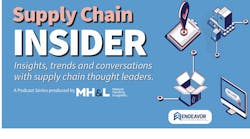Procurement leaders are now focusing on a much broader list of strategy priorities to improve their alignment with business objectives, according to new Procurement Key Issues Research from The Hackett Group, Inc. Areas such as accelerating revenue growth, enhancing operational agility and improving customer service and satisfaction are becoming more important.
"To augment spend cost reduction efforts, procurement organizations are striving to expand their focus to enable product and service innovation and ultimately growth,” said the Hackett Group's Global Procurement Advisory Practice Leader and Principal Chris Sawchuk. “To accomplish this, procurement organizations are transforming from business process executers to business process enablers. They are transitioning from episodic sourcing to a life cycle-based category management approach while broadening supplier relationship management capabilities and offering deeper supply market intelligence to the business."
"For 2013, company leaders are seeking the agility to help them achieve profit targets even if revenue falls short of expectations," said Sawchuk. "One key to this is for procurement and other business services to add value without increasing budget or headcount. They are also asking that business services become truly borderless, from geographic, organizational, technology, and process standpoints. Standardization and globalization are critical so that business services can create value by working across functions, business units and geographic borders. And finally, procurement and other business services need to drive greater insights and intelligence from the wealth of data at their disposal."
The Hackett Group's study found that procurement leaders expect their budgets to decline by 0.4 percent in 2013. Procurement staff is also expected to shrink slightly, by 0.5 percent. At the same time, annual revenue growth of 6.5 percent is expected.
Reducing spend costs remains at the top of performance-related concerns in The Hackett Group's study. But innovation has shot up in the rankings, and is now tied with spend influence as the number two priority.
Managing supply risk has increased significantly in priority as a means of profit protection, with supplier compliance receiving particular attention. The emphasis here is on efficient management of cross-functional workflows relating to regulatory requirements and supplier compliance with performance expectations. To accomplish this, companies are focusing on a combination of process improvement, master data management, analytics, measurement systems and more.
The research also recommends that as companies move from episodic sourcing activity to a life cycle-based category management approach, new capabilities must be built, including broader supplier relationship management (SRM), deeper supplier/market intelligence (and associated analytics), and the way in which these knowledge-based processes can be delivered as services in a scalable way. The goal should be to set up a “one-to-many” approach through a Center of Excellence serving both procurement and its stakeholders.


